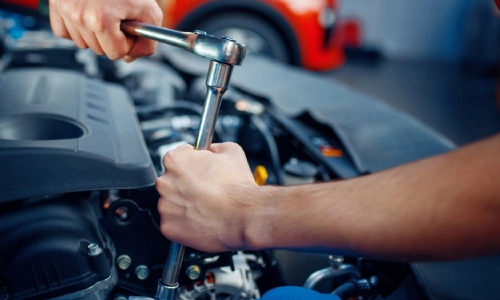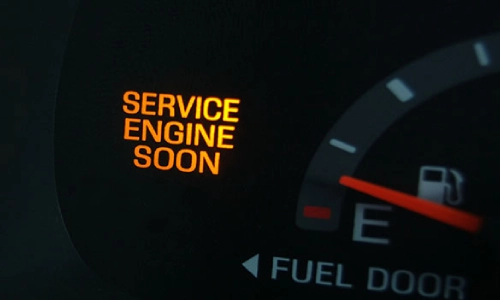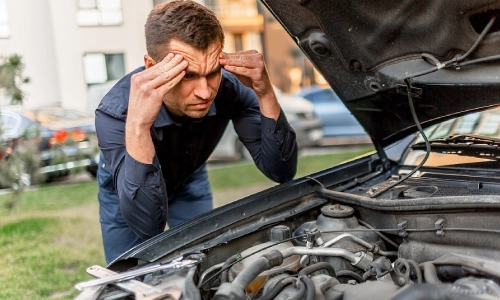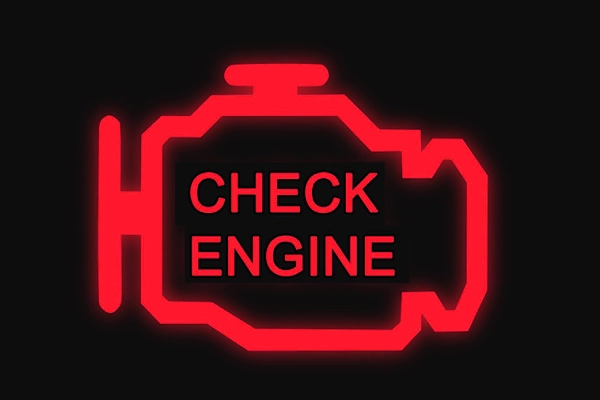Signs of Engine Problems: A Complete Guide Every Driver Should Read
Signs of Engine Problems can make a huge difference in identifying and addressing issues with your vehicle’s engine. Your car’s engine is its heart, and spotting the signs of engine trouble early can prevent a simple fix from turning into a catastrophic failure.
Whether you drive a gasoline or diesel vehicle, understanding the symptoms of engine problems can save you from being stranded and avoid costly repairs. In this comprehensive guide, we’ll cover everything you need to know, including what to look for, what the signs mean, and how to act before things get worse.
Common Signs of Engine Problems While Driving
While you’re behind the wheel, your engine may begin to show distress signals. These signs of engine problems while driving often start subtly but can quickly escalate:
- Loss of acceleration or sluggish response
- Jerky movements or sudden surges
- Engine stalling, either at stops or mid-motion
- Unusual vibrations, especially while idling
- Strange engine noises, such as knocking or pinging
- Drop in fuel efficiency

Experiencing these signs while driving is not something to ignore. They could point to problems like worn-out spark plugs, clogged fuel injectors, timing issues, or even signs of internal engine damage. Timely inspection can prevent further complications.
Contact us for engine diagnostics and repair services
More Warning Signs That Require Immediate Attention
Not every engine problem happens during acceleration. You may also notice warning signs when you start your car or even when it’s just sitting in your driveway. These can include:
- Difficulty starting the engine
- Check engine light blinking or staying on
- Strong fuel or burning smells under the hood
- Unusual exhaust smoke color and volume
These symptoms are often early warnings. Ignoring them can escalate to major internal damage, some of which may not be repairable.
Signs of Internal Engine Damage
When engine damage happens internally, it’s harder to detect, but the consequences are more severe. Some signs of internal engine damage to watch for include:
- Persistent overheating
- Thick smoke—white (coolant), blue (oil), or black (excess fuel)
- Low oil pressure or warning lights
- Oil and coolant mixing (visible as milky oil)
- Presence of metal particles in oil

These signs often indicate worn bearings, head gasket failure, or piston ring damage. Internal damage rarely goes away on its own and generally leads to engine rebuild or replacement if left unaddressed.
Signs of Engine Damage from Low Oil
Oil plays a crucial role in keeping your engine lubricated and cool. Operating your vehicle with too little or degraded oil can cause irreversible damage. Signs of engine damage from low oil include:
- Loud ticking or tapping sounds
- Illuminated oil pressure warning light
- Strong oil burning smell
- Engine misfires or hesitation
- Engine running hotter than normal
If you see any of these signs, pull over safely and check your oil levels. Prolonged low oil pressure can seize your engine, leading to a full breakdown.
Signs of Engine Problems in Diesel Vehicles
Diesel engines are designed for durability and torque, but they come with their own set of potential issues. Here are specific signs of engine problems diesel vehicle owners should recognize:
- Extended crank time when starting
- Thick, dark smoke from the exhaust
- Noticeable loss of engine power
- Knocking or rattling sounds during cold starts
- Rising fuel consumption despite steady driving habits

These issues can be caused by failing fuel injectors, faulty glow plugs, EGR valve issues, or turbocharger failure. Diesel engines require different maintenance routines compared to gasoline engines, so always follow manufacturer guidelines.
What Is the Most Common Cause of Engine Failure?
If you’re wondering what is the most common cause of engine failure?—the answer is neglect. Engine failures rarely happen overnight. They build up due to missed maintenance and overlooked warnings. Top culprits include:
- Lack of regular oil changes
- Using incorrect oil or fuel types
- Overheating due to coolant system problems
- Timing chain or belt failure
- Ignoring dashboard warning lights
- Dirty or low-quality fuel
Neglecting small problems leads to bigger ones. Routine checks and timely service are your best defense.
List of Car Engine Problems to Watch For
Being aware of a broad list of car engine problems will help you understand your car’s health and reduce risks. Some of the most frequent issues include:
- Engine misfires or rough running
- Knocking or pinging noises
- Slow or failed engine starts
- Unstable RPM or rough idle
- Dashboard warning lights
- Increased exhaust emissions
- Coolant leaks or overheating
- Fuel smell inside or near the car

You don’t have to be a mechanic to identify these problems. Being alert and proactive is enough to recognize the warning signs before they escalate.
Get in touch with us for vehicle brake service and replacement
How to Respond to Signs of Engine Problems
When you suspect signs of engine problems, you need to take swift and smart action. Follow these steps:
- Pull over if you notice severe symptoms like smoke, strange sounds, or power loss.
- Pop the hood to visually inspect oil, coolant, and other fluids.
- Listen carefully for irregular engine noises or vibrations.
- Use an OBD2 scanner if available to read engine codes.
- Avoid driving until you understand the issue.
- Contact a professional mechanic for diagnostic and repairs.
Acting quickly can help avoid towing, breakdowns, or complete engine failure.
Preventing Engine Damage: Simple Habits That Work
Prevention is always more affordable than repairs. Here are simple habits that significantly lower your chance of engine trouble:
- Stick to your vehicle’s recommended service intervals
- Change oil and filters regularly
- Keep coolant, transmission, and brake fluids topped off
- Pay attention to strange engine smells or noises
- Let the engine warm up properly in cold weather
- Use high-quality fuel and oil approved for your engine type
- Avoid heavy acceleration when the engine is cold
- Don’t overload your vehicle or tow beyond capacity

These small steps extend engine life and boost overall vehicle reliability.
Frequently Asked Questions About Signs of Engine Problems
What are the first signs of engine problems?
Unusual noises, poor acceleration, or warning lights are usually the first indicators.
Can I drive with signs of engine problems?
It’s not recommended. Driving may worsen the issue and lead to engine failure.
What does white or blue smoke from the exhaust mean?
White smoke often indicates coolant issues; blue means burning oil.
Why is my engine making a knocking sound?
Engine knocking could result from low oil, bad fuel, or internal wear.
How can I prevent engine damage from low oil?
Check your oil regularly and follow a strict oil change schedule.
Is the check engine light always serious?
Not always, but it should never be ignored. Get it scanned as soon as possible.
Final Thoughts
Being aware of the signs of engine problems can save you money, time, and stress. From the subtle changes you feel while driving to serious symptoms like overheating or unusual exhaust, each warning sign matters.
Whether you’re driving a gasoline sedan or a diesel truck, staying alert to these signals and taking quick action is the smartest move you can make as a car owner.
And if you’re in Calgary, Canada, you don’t have to handle it alone. You can count on raptorsauto for expert diagnostics and reliable engine repair services. Their skilled technicians are ready to help get your engine back to peak performance—before it’s too late.
For professional assistance, feel free to connect with our experts at Raptorsauto.


